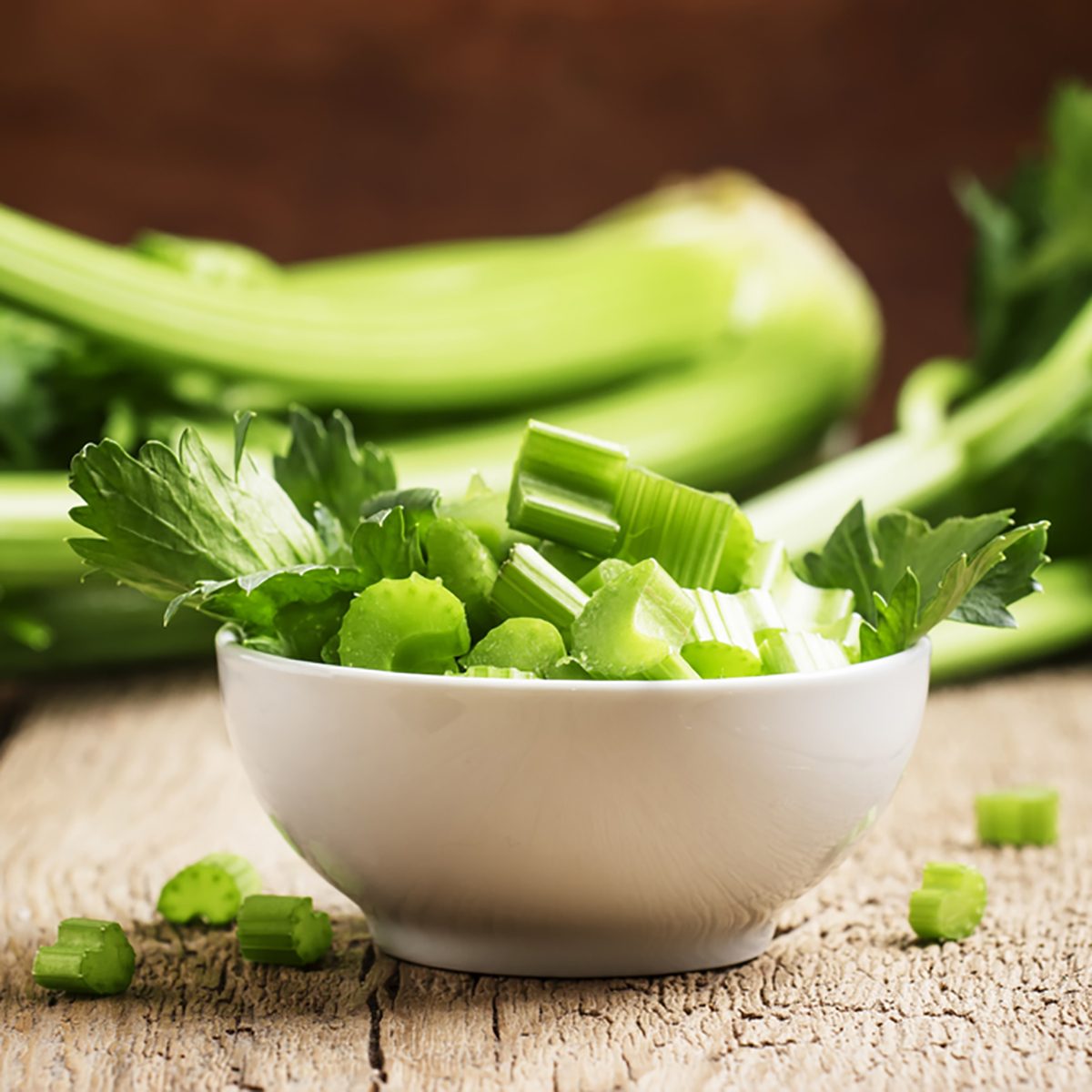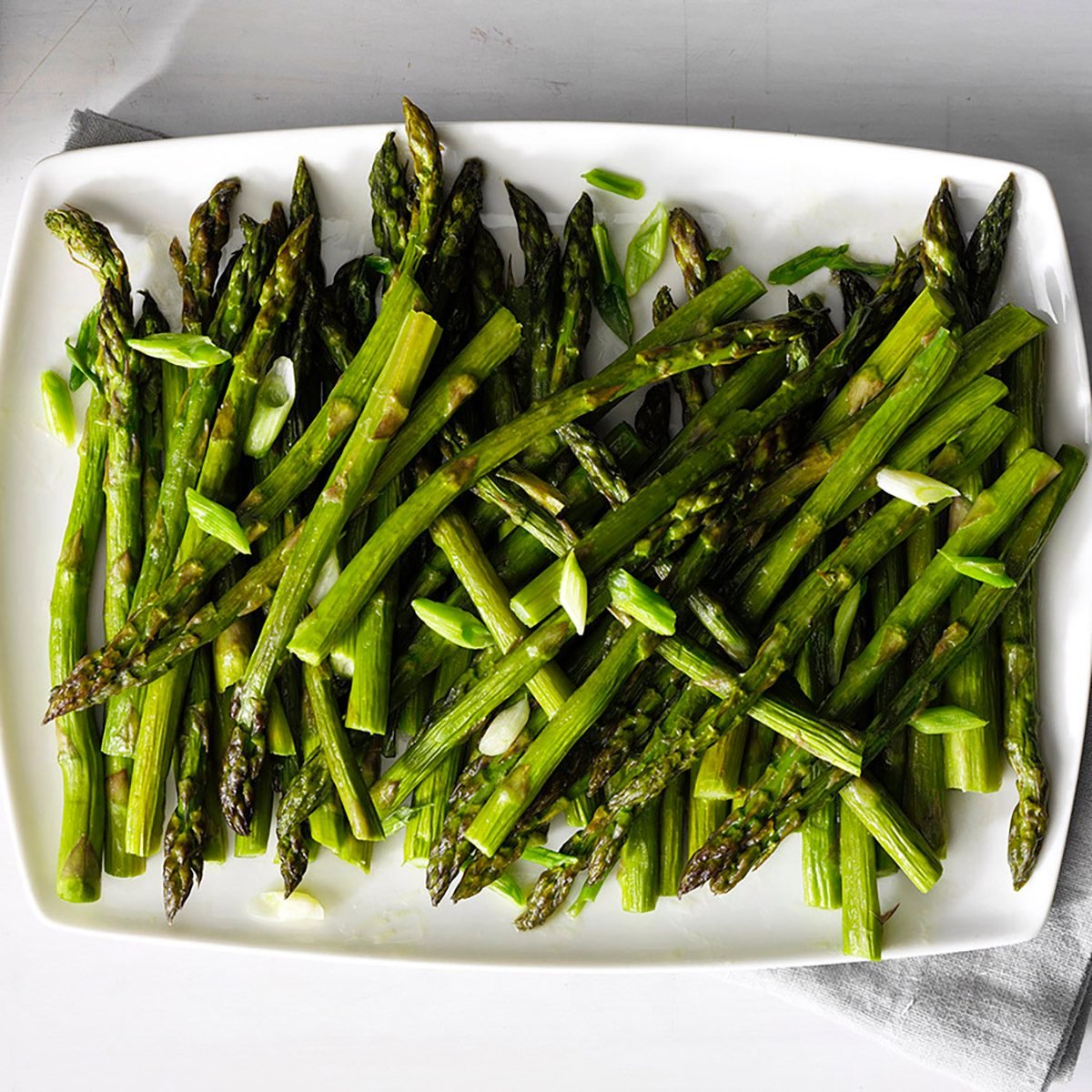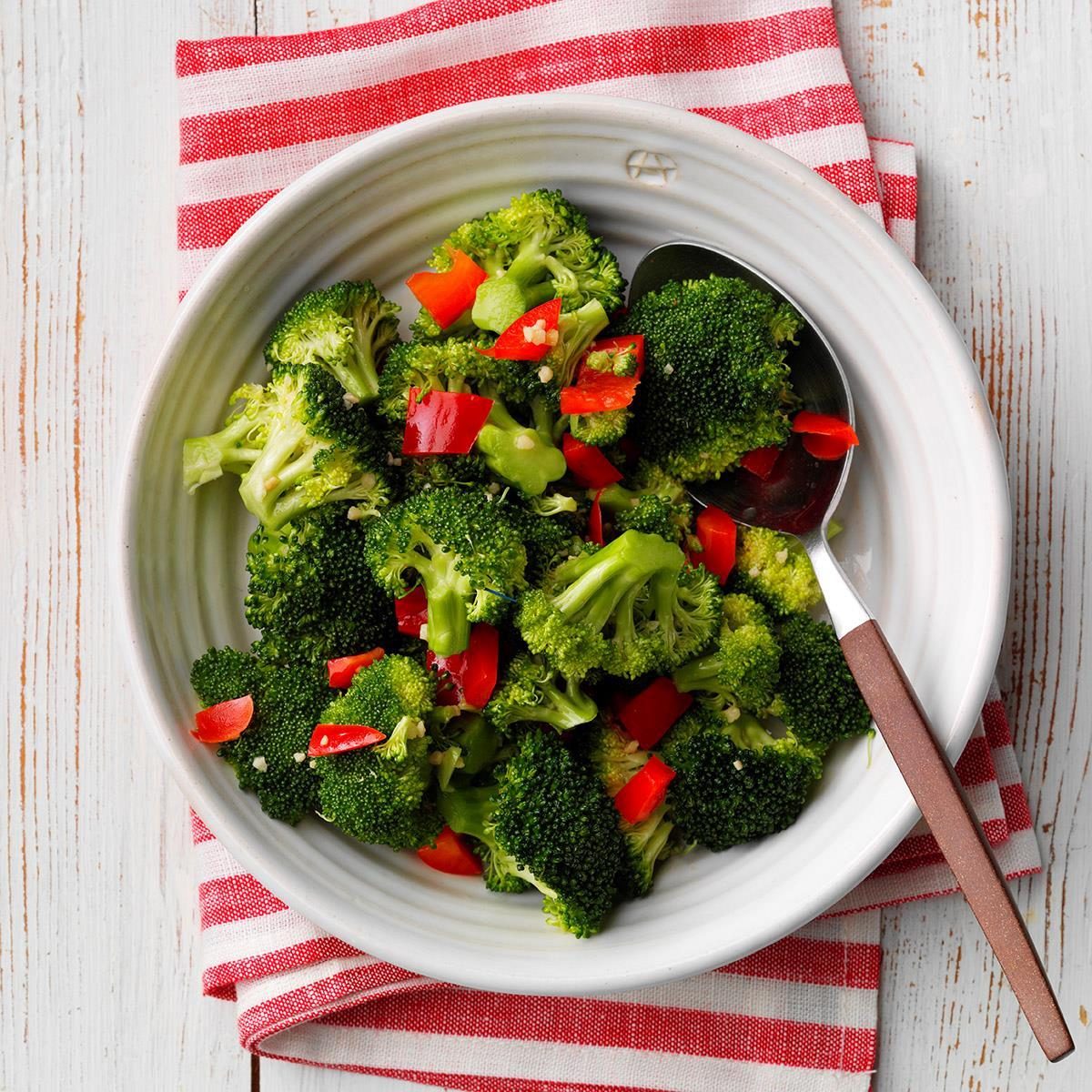
Lettuce
Dark greens such as romaine are high in vitamins A, C and K, not to mention heart-benefiting folate. Even better, an entire cup of lettuce contains only two carbs, one of which is fiber. Say goodbye to boring salads and hello to these non-boring lettuce cups and layered salads.

Cucumber
High in a compound that may boost brain health and fight cancer, cucumbers are low-carb vegetables that pack a lot of power in a single serving. A single cup contains only four grams of carbs! And, as for fresh ideas for how to eat them: they’re one of the vegetables you can spiralize.

Celery
Fresh and crunchy, celery is a healthy, hydrating vegetable. It’s high in antioxidants, as well as vitamin K, and, according to research, may help fight cancer. At the same time, one cup of chopped celery has only three grams of carbs, most of which is fiber. Find a couple unexpected ways to use celery.

Asparagus
Eating asparagus means getting a good dose of fiber, folate and vitamins A, C, E and K—all with only about five grams of carbs per cup (and even less when it’s cooked). For fresh inspiration on how to up your asparagus intake, check out our favorite ways to get the most out of asparagus.

Cauliflower
Look around the grocery store, and you’ll see there are many low-carb alternatives made from cauliflower: rice, pizza crust, pasta, etc. While this vegetable is naturally high in fiber, B vitamins and antioxidants, it only has five grams of carbs per cup.

Broccoli
Like other cruciferous vegetables Brussels sprouts and cauliflower, broccoli offers a way to maximize nutrients while minimizing carbs. It’s not only high in folate, potassium, fiber and vitamins C and K, but has just six grams of total carbohydrates per cup. Find out how to cook broccoli so it truly tastes delicious.

Cabbage
High in vitamin C and soluble fiber, cabbage helps immunity and feeds healthy gut bacteria. It may reduce the risk of heart disease and certain cancers. Yet, at the same time, an entire cup of chopped, raw, nutrient-dense cabbage contains only above five total carbs. Ever wonder what to make with cabbage? Look through our best cabbage recipes.

Green Beans
Also known as string beans, green beans are technically part of the legume family—but have much lower carbs. With only six grams of digestible carbs per cooked cup, these vegetables are high in brain-benefiting, cancer-fighting antioxidants you can feel good about eating. Find the best way to cook green beans.

Brussels Sprouts
High in vitamins K and C, Brussels sprouts are a low-carb, cruciferous vegetable with cancer-fighting benefits. A full cooked cup contains 12 grams of carbs, four of which are fiber. They can also be delicious, especially when roasted. Explore all the great methods in this roundup of roasted vegetable recipes.

Zucchini
Water-heavy zucchini is not only rich in fiber and many vitamins, but it’s also a good source of minerals such as potassium and manganese. Its long list of health benefits ranges from improving digestion to supporting a healthy heart. Per cup, this vegetable packs about four grams of carbs. Have an abundance of garden-fresh zucchini? Try these top-rated recipes.
The post 10 Low-Carb Vegetables for When You’re Eating Healthy appeared first on Taste of Home.
Shanna Mallon